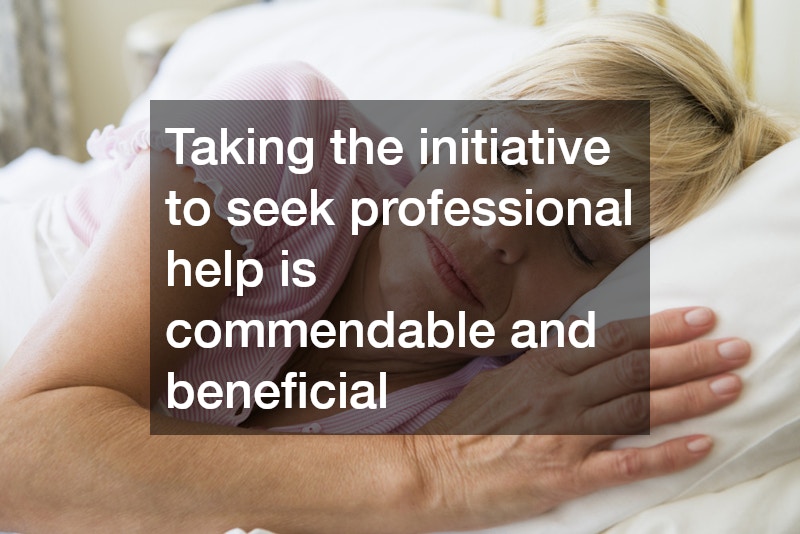Visiting a local sleep apnea center for the first time can be both an enlightening and slightly daunting experience. Sleep apnea, a disorder where breathing repeatedly stops and starts during sleep, impacts many people worldwide. Understanding what to expect during your visit can lessen anxiety and prepare you for an effective consultation.
Sleep apnea centers specialize in diagnosing and managing sleep disorders, providing patients with much-needed relief from symptoms. By understanding the importance of sleep health, these centers aim to enhance your overall well-being. With appropriate treatment, many people experience significant improvements in their quality of life.
Acknowledging the fear of the unknown is natural, but rest assured that sleep apnea centers are designed to make you feel comfortable and informed. As specialized medical facilities, they focus on patient care and individualized treatment strategies. In this article, we will walk through the steps of a first visit, ensuring you’re adequately prepared and know what to expect.
Initial Consultation and Assessment
Your first visit to a local sleep apnea center typically begins with an initial consultation and assessment. During this phase, you will meet with a specialist who will review your medical history and symptoms. This information is crucial for forming an accurate diagnosis and ensuring that your treatment plan is personalized.
The specialist may ask about your sleep habits, lifestyle, and any underlying medical conditions. Their goal is to gather comprehensive background information to better understand your sleep patterns. Providing detailed answers will aid the specialist in creating an effective and tailored approach.
In addition to discussing your health history, you may undergo preliminary diagnostic tests. These tests could include questionnaires or evaluations to pinpoint the severity of your condition. The initial consultation sets the foundation for the entire diagnostic process, making it a critical component of your visit.
Diagnostic Testing and Procedures
Following the initial consultation, diagnostic testing is typically conducted to confirm a sleep apnea diagnosis. One of the most common tests performed is a polysomnogram, or sleep study, which monitors various body functions during sleep. This study is usually conducted overnight at the sleep center to obtain the most accurate results.
During the sleep study, electrodes and sensors are attached to your body to track brain activity, eye movement, heart rate, and more. The information gathered helps the specialist determine whether you have sleep apnea and the severity of the condition. Understanding the depth of the disorder is necessary for developing an effective treatment plan.
In some cases, home sleep apnea tests may be offered as a more convenient alternative. These tests are performed in the comfort of your own home, using portable monitoring devices. Regardless of the method, the objective is to gather sufficient data to make an informed diagnosis and formulate a treatment plan.
Discussion of Treatment Options
Once the diagnostic testing is complete, you will meet with your specialist again to discuss treatment options. Depending on the severity of your sleep apnea, treatments can vary from lifestyle changes to medical devices or even surgery. Discussing these options openly with your healthcare provider is essential for deciding the best course of action.
Continuous Positive Airway Pressure (CPAP) therapy is one of the leading treatments for sleep apnea, gaining prominence due to its high efficacy. For many patients, CPAP therapy significantly reduces symptoms, improving sleep quality and overall health. Your specialist will provide instructions on how to use and maintain the CPAP equipment as part of your therapy.
For some patients, alternative treatments such as oral appliances or weight loss strategies might be recommended. The discussion ensures that you are fully aware of all treatment avenues, including their benefits and potential drawbacks. A well-rounded approach is necessary for achieving the best possible outcome in managing sleep apnea.
Follow-up Care
Your journey doesn’t end after the initial consultation and testing phase; ongoing follow-up care is crucial for effective management. A local sleep apnea center provides continuous support and monitoring, ensuring that your treatment remains effective and up-to-date. Regular follow-up visits allow adjustments to your treatment based on your progress and feedback.
Effective management of sleep apnea often requires lifestyle adjustments, such as weight management, quitting smoking, and incorporating a regular exercise routine. Your healthcare provider will guide you through these changes, helping you understand the importance of a holistic approach. Maintaining open communication with your specialist is key to overcoming challenges you might face during your treatment.
Additionally, sleep apnea centers may offer educational resources and support groups. These resources can provide further insight into living with and managing sleep apnea. By engaging with these tools, patients often feel more empowered and encouraged to adhere to their treatment plans.
Understanding what to expect during your first visit to a local sleep apnea center can help alleviate stress and enhance your overall experience. From initial consultations and comprehensive testing to reviewing treatment options, sleep centers provide essential services catered to your needs. Continuous support and follow-up care play vital roles in effectively managing your condition.
Beginning this journey at a local sleep apnea center is the first step towards reclaiming restful nights and revitalized days. With the assistance of experienced specialists, you’re equipped with valuable knowledge and resources to combat sleep apnea. By actively participating in your treatment, you can achieve significant improvements in health and quality of life.
If you suspect you have sleep apnea, taking the initiative to seek professional help is commendable and beneficial. The comprehensive care at local sleep apnea centers aims to empower you with strategies to manage your condition effectively. Embrace this opportunity to improve your well-being, backed by understanding and skilled medical guidance.





